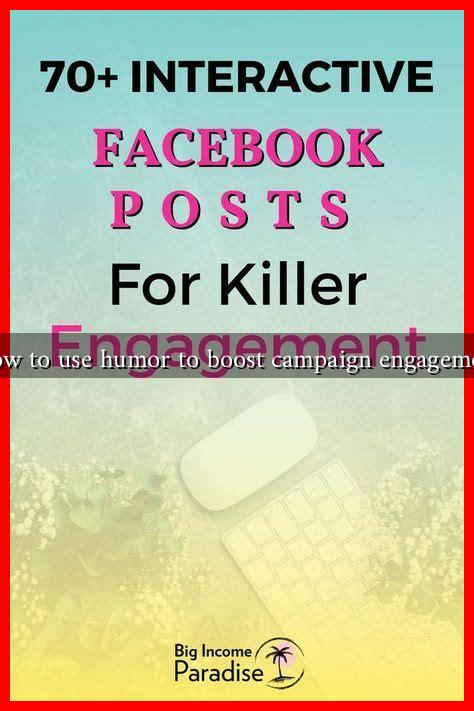-
Table of Contents
How to Use Humor to Boost Campaign Engagement
In the fast-paced world of digital marketing, capturing the attention of your audience is more challenging than ever. With countless brands vying for attention, using humor can be a powerful tool to enhance campaign engagement. This article explores how humor can be effectively integrated into marketing strategies, supported by examples, case studies, and statistics.
The Science Behind Humor in Marketing
Humor is not just a tool for entertainment; it has psychological benefits that can enhance consumer engagement. According to a study published in the journal *Psychology & Marketing*, humorous advertisements can increase brand recall and improve consumer attitudes towards the brand. Here are some key reasons why humor works:
- Increased Attention: Humor captures attention and makes content more memorable.
- Emotional Connection: Laughter creates a positive emotional response, fostering a connection between the brand and the consumer.
- Shareability: Humorous content is more likely to be shared on social media, increasing reach and engagement.
Types of Humor to Consider
When incorporating humor into your campaigns, it’s essential to choose the right type. Here are some effective styles:
- Witty Wordplay: Clever puns and plays on words can engage audiences while showcasing brand personality.
- Relatable Humor: Jokes about everyday situations can resonate with audiences, making them feel understood.
- Satire and Parody: These can be effective in critiquing competitors or societal norms, but they must be used carefully to avoid backlash.
Successful Case Studies
Several brands have successfully utilized humor in their campaigns, leading to increased engagement and brand loyalty. Here are a few notable examples:
- Old Spice: The “The Man Your Man Could Smell Like” campaign featured humorous, over-the-top scenarios that went viral, significantly boosting sales and brand awareness.
- Geico: Known for its humorous commercials, Geico’s use of quirky characters and absurd situations has made its ads memorable, leading to a consistent increase in customer engagement.
- Dollar Shave Club: Their launch video featured a humorous take on the shaving industry, which not only went viral but also helped the company gain a substantial market share quickly.
Tips for Implementing Humor in Your Campaigns
To effectively use humor in your marketing campaigns, consider the following tips:
- Know Your Audience: Understand the demographics and preferences of your target audience to tailor your humor accordingly.
- Stay Authentic: Ensure that the humor aligns with your brand’s voice and values to maintain authenticity.
- Avoid Controversy: Steer clear of humor that could be offensive or polarizing, as this can alienate potential customers.
- Test and Measure: Use A/B testing to gauge the effectiveness of humorous content and adjust your strategy based on engagement metrics.
Conclusion
Incorporating humor into your marketing campaigns can significantly enhance engagement and foster a deeper connection with your audience. By understanding the science behind humor, choosing the right type, and learning from successful case studies, brands can create memorable and shareable content. Remember to know your audience, stay authentic, and measure your results to refine your approach. As the digital landscape continues to evolve, humor remains a timeless strategy for capturing attention and driving engagement.
For more insights on effective marketing strategies, check out HubSpot’s Marketing Statistics.

